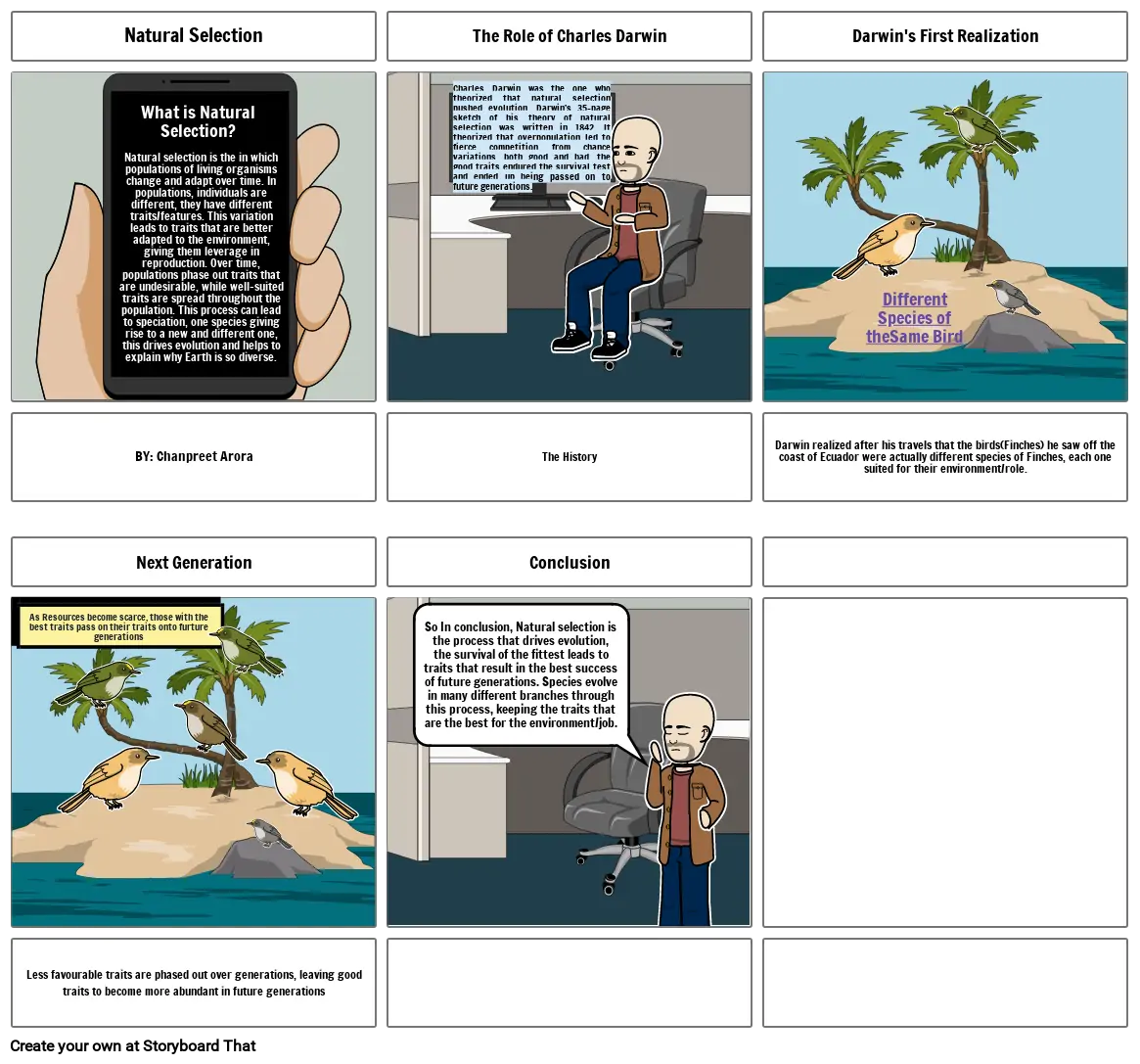Natural Selection

Kuvakäsikirjoitus Teksti
- Natural Selection
- Natural selection is the in which populations of living organisms change and adapt over time. In populations, individuals are different, they have different traits/features. This variation leads to traits that are better adapted to the environment, giving them leverage in reproduction. Over time, populations phase out traits that are undesirable, while well-suited traits are spread throughout the population. This process can lead to speciation, one species giving rise to a new and different one, this drives evolution and helps to explain why Earth is so diverse.
- What is Natural Selection?
- The Role of Charles Darwin
- Charles Darwin was the one who theorized that natural selection pushed evolution. Darwin’s 35-page sketch of his theory of natural selection was written in 1842. It theorized that overpopulation led to fierce competition, from chance variations, both good and bad, the good traits endured the survival test and ended up being passed on to future generations.
- Darwin's First Realization
- Different Species of theSame Bird
- As Resources become scarce, those with the best traits pass on their traits onto furture generations
- BY: Chanpreet Arora
- Next Generation
- The History
- Conclusion
- So In conclusion, Natural selection is the process that drives evolution, the survival of the fittest leads to traits that result in the best success of future generations. Species evolve in many different branches through this process, keeping the traits that are the best for the environment/job.
- Darwin realized after his travels that the birds(Finches) he saw off the coast of Ecuador were actually different species of Finches, each one suited for their environment/role.
- Less favourable traits are phased out over generations, leaving good traits to become more abundant in future generations
Yli 30 miljoonaa kuvakäsikirjoitusta luotu

